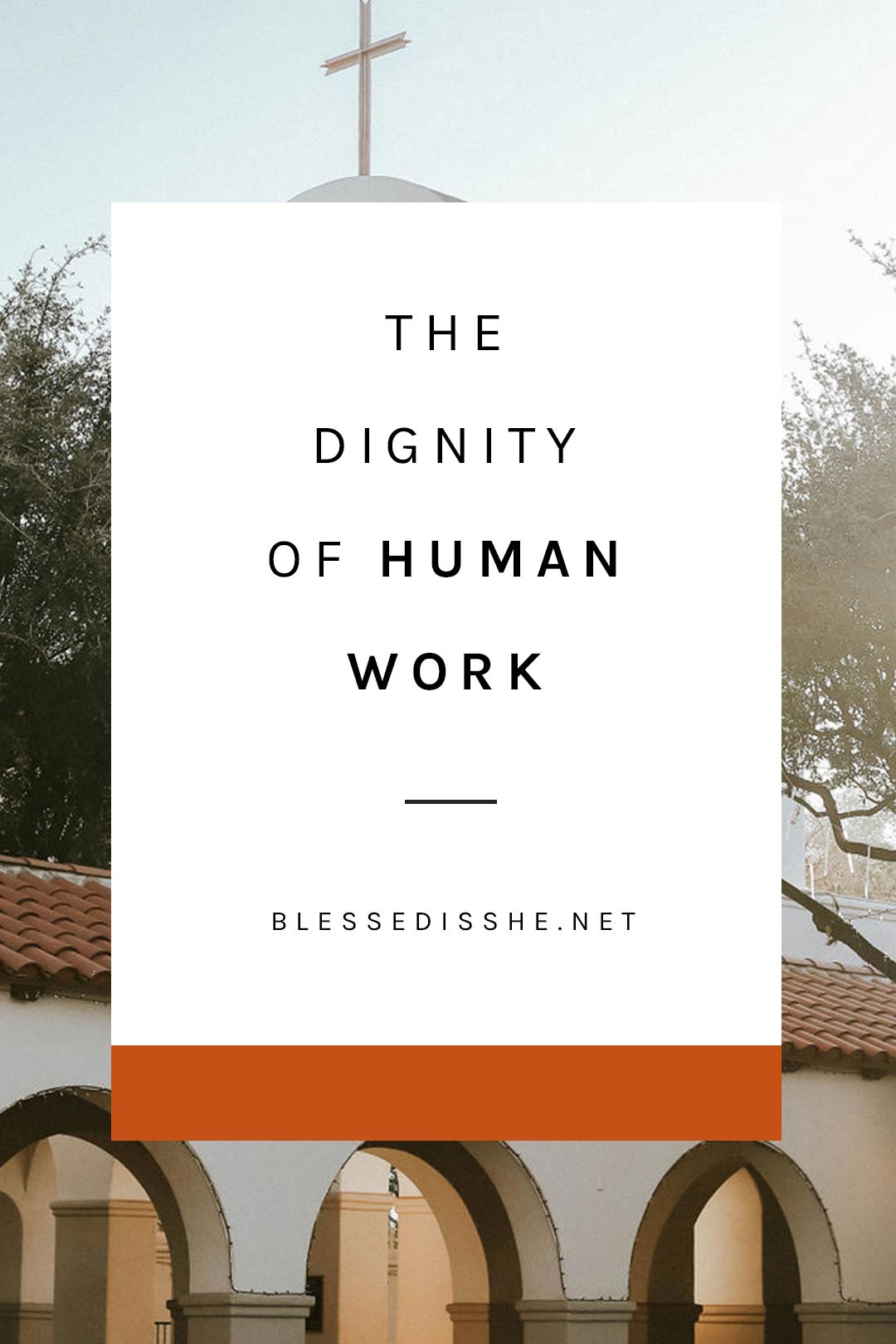
Everyone works. Animals work, humans work. But freedom can only be found in the work of a human because through it we become who we are meant to be.
Human Work As An Expression Of Man’s Dignity
In Laborem Exercens Pope St. John Paul II wrote specifically on human work. From the beginning, as we read in Genesis, man was placed on earth to order and subdue it. It is in his very nature. John Paul even describes work as something worthy of man—it expresses man’s dignity. He tells us about the ethical meaning of work, writing that:
Work is a good thing for man-a good thing for his humanity-because through work man not only transforms nature, adapting it to his own needs, but he also achieves fulfilment as a human being and indeed, in a sense, becomes ‘more a human being.'
When one works, they are thinking of others. First, one may be thinking of their own family. But they should also consider the society they belong to, their country of origin, as well as their entire human family both present and those to come in the future. For as John Paul said, “he is the heir to the work of generations and at the same time a sharer in building the future of those who will come after him in the succession of history.”
John Paul’s Experience Of Work
The definition of “labor” means “expenditure of physical or mental effort especially when difficult or compulsory.''
Labor Day is a much appreciated day of rest from this physical and mental exertion. I appreciate that, while recognizing the good of work, John Paul does not diminish the hardship it entails. He notes that the bread man produces he does by the work of his hands and by the sweat of his brow.
As he writes in Laborem Exercens, man works "in the midst of many tensions, conflicts and crises, which, in relationship with the reality of work, disturb the life of individual societies and also of all humanity."
John Paul has shared with us about his first hand experience of this.
Poetry Within The Quarry
During World War II, Wojtyla experienced forced labor in a limestone quarry. He wrote about this in his poem titled “The Quarry”. Here he speaks of a man who, although deeply engrossed in an environment which would easily trigger one to feel anger and resentment, does not fall prey to despair. While this worker observed the blood, sweat, and tears around him, he kept his sight on Christ.
John Paul wrote that rather then let evil corrode his soul, “the man has taken with him the world’s inner structure, where the greater the anger, the higher the explosion of love.”
This quarry worker viewed the constant smashing of the hammer against stone as a meditation for chiseling away at his own imperfections in order to become a more perfect reflection of Christ. To be an explosion of His love.
The Fruitfulness of the Work of the Laity
Though I doubt that many of us reading this have experienced the manual labor of work in a quarry, this poem can be a reminder to us as we labor in our own work day, be this in the home or out in the world.
Pope Paul VI wrote in Lumen Gentium that:
the laity, dedicated to Christ and anointed by the Holy Spirit, are marvelously called and wonderfully prepared so that ever more abundant fruits of the Spirit may be produced in them. For all their works, prayers and apostolic endeavors, their ordinary married and family life, their daily occupations, their physical and mental relaxation, if carried out in the Spirit, and even the hardships of life, if patiently borne-all these become ‘spiritual sacrifices' acceptable to God through Jesus Christ...the laity consecrate the world itself to God.
One tangible way we can dedicate our day to Christ is by praying a daily offering.
Though at times, we may find human work less of a joy and more of an invitation to embrace Jesus’ Cross, it is also a sign of hope, or as John Paul says, “a glimmer of new life,” for through it we participate in God’s divine plan.
A Day Worthy of Rest
Of course, the knowledge of the goodness of work should not keep us from enjoying the wonderful day of leisure that Labor Day offers us. After all, John Paul advises that we imitate God not only in working, but also in resting, especially on the Sabbath.
He says that man’s work “cannot consist in the mere exercise of human strength in external action; it must leave room for man to prepare himself, by becoming more and more what in the will of God he ought to be.”
Find rest today, in the confidence that by doing so you are preparing to be the person God has created you to be.































